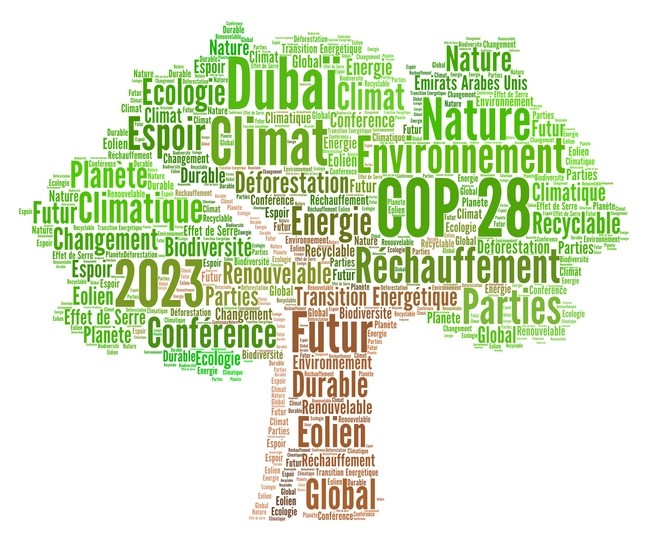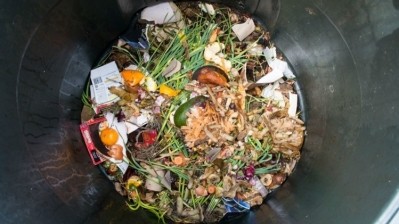COP28’s food system focus eagerly anticipated by experts

Leaders are expected to sign a first of its kind declaration that recognizes the “indisputable links between food systems, agriculture, and climate change” at the World Climate Action Summit, a COP28 side event on 1-2 December. COP28 will also be the first to feature food systems on a thematic day, scheduled for 10 December.
Ahead of the event, food system experts have presented the case for urgent action to reduce emissions and build resilience to ensure food security.
There’s the growing body of scientific evidence that suggests that food systems solutions should be “front and centre” in the fight against the climate and biodiversity crises, according to Tim Benton, Research Director of the Environment and Society Programme at Chatham House. “To tackle the food system transformation, we have to think about what is grown, how it's grown, where it's grown, and how much is grown, and therefore what is consumed,” he told a media briefing.
There is also a growing relationship between poor human health and poor planetary health. One challenge is that much of the food that people eat is not good for their health. And as a stark example of how not dealing with the climate crisis may impact people’s health, Benton noted that agriculture now accounts for 81% of the world’s ammonia pollution, which is responsible for around half of respiratory deaths in Europe.
Transforming the food system is therefore key to tackling climate change as well “biodiversity loss, pollution, and human health and well-being as well,” he said.
Food systems are also a victim of climate change, which is hitting agriculture productivity, reducing food security and disrupting food supply chains.
“Business as usual is no longer an option," warned Patty Fong, Program Director at the Global Alliance for the Future of Food. "At COP28 there's an opportunity for food systems to finally get the recognition it deserves as a critical climate mitigation adaptation solution. For the first time during a global climate summit, heads of state of many countries are expected to commit to transforming their food and agricultural systems. In addition, actors from across the food systems from food producers to financial institutions are expected to pledge their own resources and advance ambitious plans."
'Growing international focus on food as a systems issue'
Professor Sir David Nabarro, Strategic Director at the 4SD Foundation, welcomed the growing international focus on food as a systems issue, kickstarted by the ‘watershed’ UN Food Systems Summit back in 2021 that set the stage for global food systems transformation to achieve the Sustainable Development Goals by 2030.
“Food touches so many aspects of human existence [and] so many aspects of the future of our planet, that it has to be treated as an interdependent systems issue,” he said.
COP28 will feature the “most intense treatment of food in one of these annual climate meetings that I've ever seen in my life,” he declared, with the declaration from leaders “key to what will be a two-year process through which countries will converge their work on climate and their work on food in ways that serve the interests of farmers, and in ways that serve the interests of consumers of all kinds."
It’s not yet known which or exactly how many will sign the leaders’ declaration, however, or how significant any subsequent action will be. “The early signs suggest that it is well over 50 and might get towards 100,” said Nabarro. “That is huge. Because that is heads of state and government saying, unequivocally, we are going to bring together our climate commitments and our food commitments so that they are integrated.
“There are going to be countries that will hold back and will not do the convergence. But I think then it's going to be reasonable to ask them, especially if they signed the declaration at the presidential level: ‘what's going on? Why aren’t things moving?”
'More financial commitments from governments, banks and businesses needed'
Other challenges include the adoption of more sustainable practices among the world’s farmers. More financial commitments from governments, banks and businesses are needed to meet the multiple objectives of climate change mitigation and adaptation, protecting nature and transforming food systems, the experts told journalists.
"We're calling on governments to reshape financial incentives and to introduce supportive policies and regulations that really create that market and trade conditions to favour healthy and sustainable foods," said Fong.
COP28 pledges and commitments must translate into 'real transformative and systemic action', she added. "It has to be backed up by finance, by real money, by concrete timetables and targets reducing emissions for protecting and restoring nature for taking fossil fuels out of food systems, and for cutting food loss and waste."
"Food systems, especially industrialized food systems, are highly energy intensive, and reliant on fossil fuels throughout the value chain from the production of the use and use of pesticides, synthetic fertilizers and plastics through the production of crops, fish, meat and dairy processing and transport, distribution and cooking. It drives 90% of deforestation, and 60% of biodiversity loss. It accounts for 70% of the world's freshwater use. It's also a major cause of poor health and nutrition."
Tellingly, only 3% of climate finance currently is dedicated to food systems, even though it contributes to a third of greenhouse gas emissions. Just 1.7% goes to smallholder farms who produce around a third of the world's food.
“There is an onus on political decision-makers and market players to think about who gets the profits and share the profits more equitably through the system, to allow farmers to do things in different ways that are locally appropriate,” Benton said.
'The cheaper food paradigm'
The other challenge brought by food system transformation is the likely increase in costs for producers and consequent price increases for consumers.
“I think it's a really key question which we haven't properly addressed,” said Benton. “And to a certain extent, it's a challenge and an opportunity. The opportunity is that because there is so much consolidation, particularly in the global markets, that if we convince five or six companies to do the right thing in the right way, then large-scale change can happen very, very quickly. The risk is, of course, that the converse happens that the business model maintains the status quo, and the power asymmetries block the ability of local small-scale resilience building.”
But the opportunity is significant, stressed Benton, “if the big businesses really decide that they want to start making more money from selling properly produced sustainably produced goods, rather than making money from unsustainably produced goods, which has historically been more of the case.”
And he ended on a hopeful note. “I've been working in this space for decades, 10 years ago no one had heard the term food systems, then we had the Food System Summit. Now we're getting it really firmly on the COP agenda. So that's really to be celebrated.”













